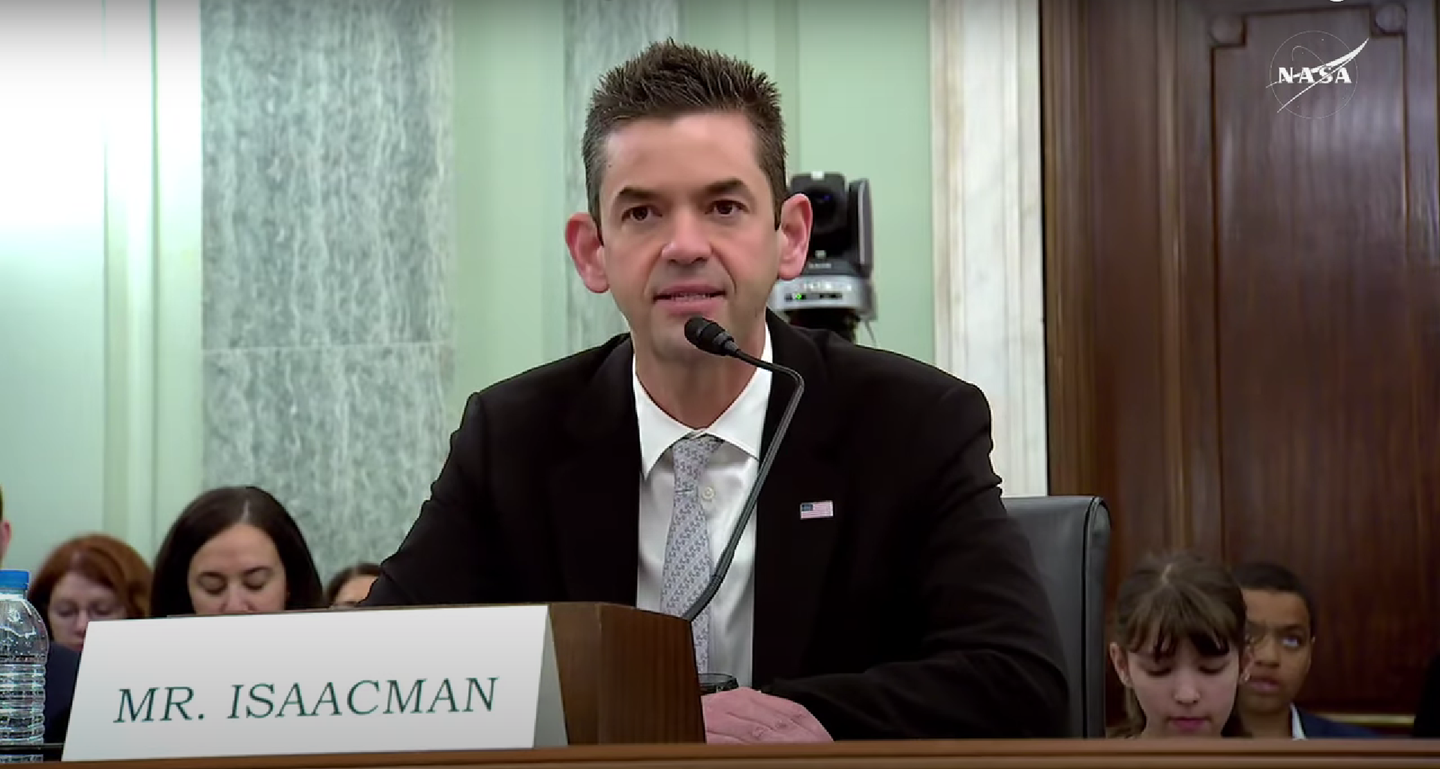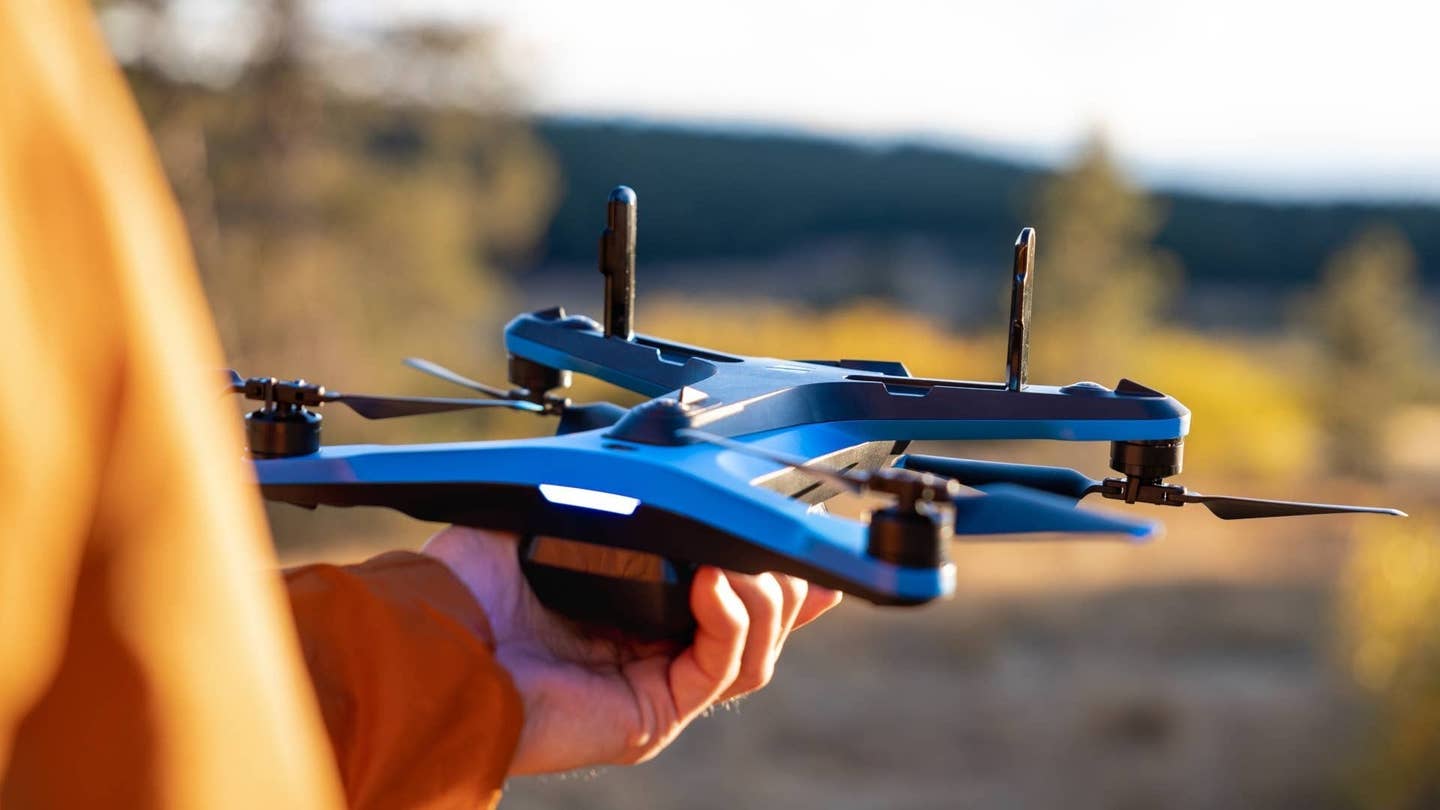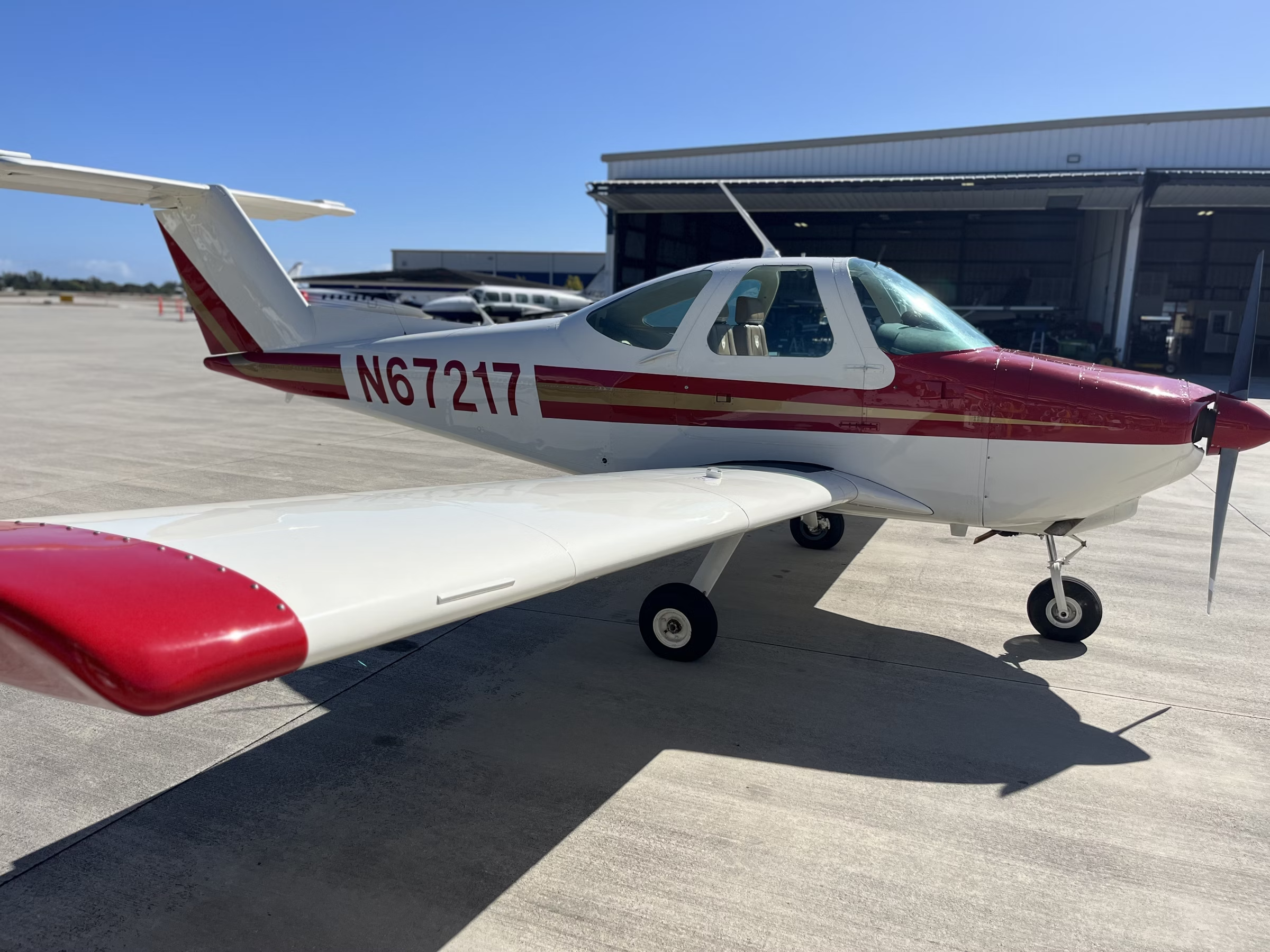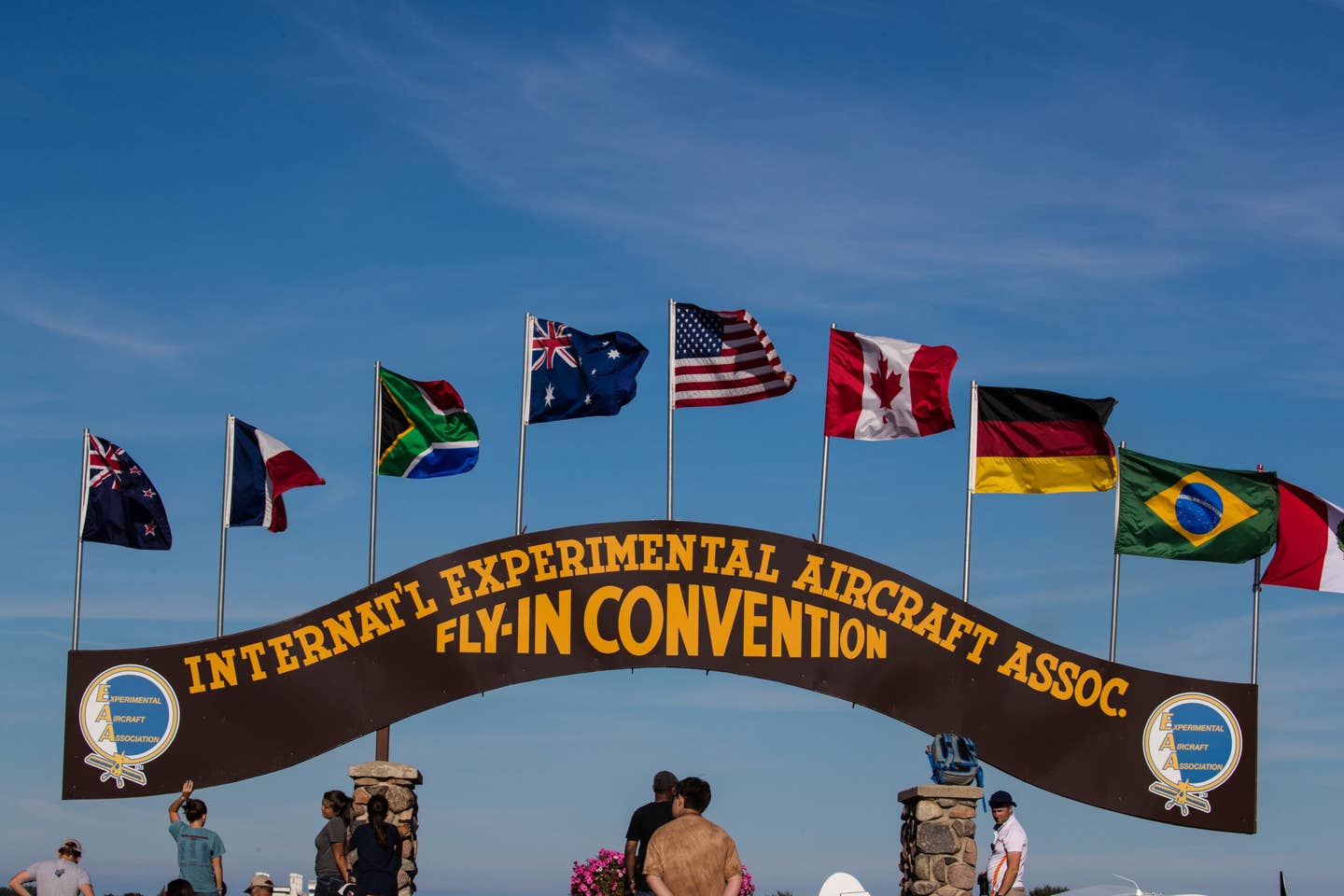Virgin Orbit Satellite Launch Company Set to Go Public
Sir Richard Branson’s Virgin Orbit, a satellite launch and services company, will officially become a publicly traded company following its merger with NextGen Acquisition Corp. II (NASDAQ: NGCA).
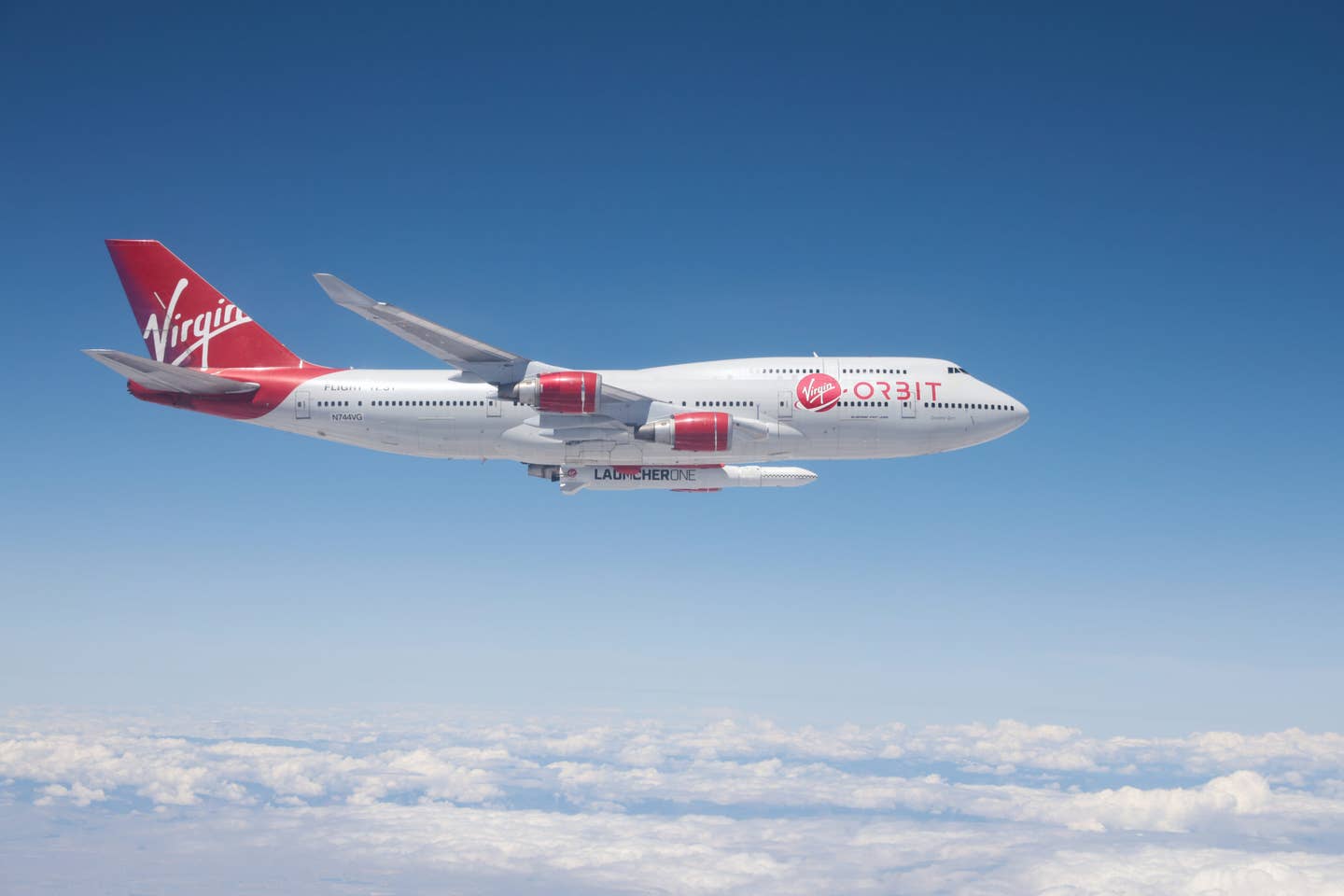
Virgin Orbit’s carrier aircraft Cosmic Girl as seen in-flight during the company’s cryogenic captive carry flight. [Courtesy: Virgin Orbit/Greg Robinson]
Sir Richard Branson’s Virgin Orbit, a satellite launch and services company, will officially become a publicly traded company following its merger with special purpose acquisition company (SPAC) NextGen Acquisition Corp. II (NASDAQ: NGCA).
The merger, which was approved by NextGen’s shareholders in a proxy vote Tuesday, allows Virgin Orbit to be listed on the Nasdaq stock exchange as “VORB.”
To commemorate the listing, Branson and Virgin Orbit executives will ring the opening bell at the Nasdaq exchange on January 7, 2022.
In a statement Tuesday, Branson singled out Virgin Orbit CEO Dan Hart, a former Boeing vice president of government satellite systems, in addition to the wider team, NextGen partners, and other investors.
“Thanks to Dan and his world-class team, along with the support of our partners at NextGen and other investors, Virgin Orbit is well-positioned to continue revolutionizing satellite launch and building unrivalled space technology that we believe will positively change the world. With a diverse and global customer base, it is the only launch company that can go anytime, from anywhere, to any orbit,” Branson said.
Following the announcement, the Virgin Group said it would purchase up to $100 million of Virgin Orbit’s common stock and PIPE investment, in a move to infuse the company with the capital it will need to support its operations.
“The capital raised through this transaction combined with our new access to the public markets, will enable us to scale rocket manufacturing and extend our space solutions business and product development while we continue to expand globally through key partnerships with customers worldwide,” Dan Hart said.
The merger with NextGen is valued at approximately $3.2 billion, and proceeds of the deal yield approximately $228 million to fund growth, of which $68 million came from trust proceeds while the other $160 million came from PIPE investors including, Boeing (NYSE: BA), AE Industrial Partners, Mubadala Investment company, and sponsors of NextGen. It is important to note, that when the SPAC merger was announced in August, the company projected that it would raise as much as $483 million, which means this actual yield is far from their target.
Since its inception in 2017, Virgin Orbit has launched 19 satellites and has customers across the civil, commercial, international, and national security sectors. Some customers include NASA, the U.S. Department of Defense, the Royal Netherlands Air Force, and Polish company SatRevolution.
Meanwhile, George Mattson and Gregory Summe, the co-founders of NextGen, said that Virgin Orbit’s “differentiated technology drives huge benefits to customers in the national security, civil, and commercial markets around the world. We are excited to help Virgin Orbit progress into the next chapter of its exciting journey as a public company.”
‘Cosmic Girl’ and ‘LauncherOne’
Virgin Orbit uses a customized Boeing 747 aircraft as a mobile launch site, a flying mission control, and a fully reusable first-stage vehicle. Each mission begins at approximately 35,000 feet above sea level, and given the incumbent speed of the jet, its LauncherOne designed rocket that carries smallsat payloads, is deployed from the 747, dubbed Cosmic Girl. On January 17 this year, it completed its first successful flight, delivering a payload of 10 CubeSats to low Earth orbit.
What’s next: Demonstrator flight, international collaboration, space solutions services
Looking ahead, the company is planning to complete three launches in January 2022 in a mission dubbed “Above the Clouds” for three new customers—the U.S. Department of Defense, SatRevolution and Spire Global (NYSE: SPIR)—and said in its announcement that it has already completed rehearsal for that flight when the launch window opens on January 12, 2022.
Additionally, the company has entered into multiple agreements with other companies and international spaceports to conduct a variety of missions that will see it tackle space debris mitigation, exploration, environmental monitoring, and national security.
Notably, ANA holdings, the parent company of Japan’s largest airline, plans to use LauncherOne for 20 flights from Japan’s Oita Prefecture.
Finally, the company is diversifying its offering to provide a more compelling product line for future customer, as it indicated when it announced in early December that it was investing in other space solutions companies such as quantum encryption company Arqit (NASDAQ: ARQQ), marine intelligence company Horizons Technologies, and geospatial analytics company HyperSat.
Launch technicians prepare LauncherOne for the "Above the Clouds" mission. [Courtesy: Virgin Orbit)

Sign-up for newsletters & special offers!
Get the latest FLYING stories & special offers delivered directly to your inbox


